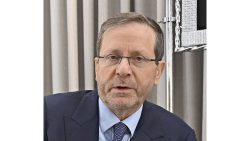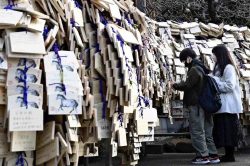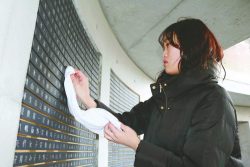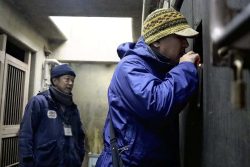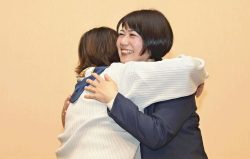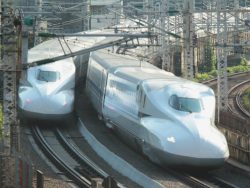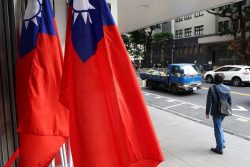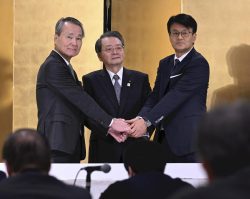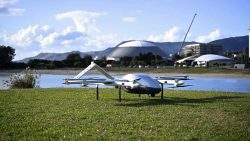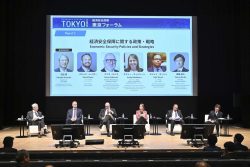12:41 JST, May 7, 2021
Space development is entering a new era. It is important for Japanese astronauts to continue participating in international projects and enhance Japan’s presence in this area.
Akihiko Hoshide of the Japan Aerospace Exploration Agency (JAXA) has started a long-term stay on the International Space Station (ISS). As the second Japanese commander, he will lead a crew of U.S., European and Russian astronauts and take on the heavy responsibility of managing the ISS.
Soichi Noguchi, who had been on the ISS for six months, welcomed Hoshide, who took over his duties. This is the first time in 11 years that Japanese astronauts had stayed on the ISS at the same time.
During his stay on the ISS, Hoshide also plans to conduct various experiments. Hopefully, the results will be used in future scientific developments.
There are seven active Japanese astronauts, but their average age exceeds 50. Looking ahead to the future, there is an urgent need to take over skills and experience from Hoshide and other veteran astronauts in their 50s and train young astronauts who will aim to fly to the moon or Mars.
JAXA plans to start publicly recruiting new astronauts as early as autumn. It intends to widen the scope for applicants by easing the application requirements, which were limited to the graduates of university science faculties. It needs to gather a diverse range of human resources and open up the future of space development.
This time, Hoshide was sent to the ISS in a U.S. SpaceX spacecraft. In recent years, the means of transportation to the ISS had been limited to Russia’s Soyuz spacecraft, but the United States has relied on the power of the private sector to resume launches from the United States, which had been disrupted since the retirement of the U.S. Space Shuttle program.
Noguchi also returned to Earth on a SpaceX ship. Both Hoshide and Noguchi have been on three different types of spacecraft — Space Shuttle, Soyuz and SpaceX ships. It is hoped that their valuable experience will be used for future space development.
The ISS has been maintained through cooperation among Japan, the United States, Europe and Russia, among others. Even in the 2014 crisis in which Russia annexed the Crimean Peninsula, U.S. and Russian astronauts stayed on the ISS together, making it a symbol of international space cooperation.
However, no decision has been made on how the ISS will be operated after 2025 due to the aging of the station. Meanwhile, China, which is aiming to become a great power in space, is building its own space station. There have been indications that Russia will withdraw from the ISS project and is moving closer to China.
The United States intends to proceed with manned lunar exploration in its Artemis program as the next step, and Japan has already announced its participation in the project. Japan should continue to work with the United States on international projects and aim to send Japanese astronauts to the moon.
In doing so, Japan needs to actively get involved in international rule-making efforts to prevent disorderly competition for resources between the United States and China, among others.
— The original Japanese article appeared in The Yomiuri Shimbun on May 7, 2021.
"Editorial & Columns" POPULAR ARTICLE
-
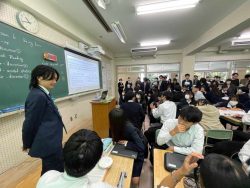
Artificial Intelligence Expands Possibilities for Foreign Language Learners
-

Build Intellectual, Physical Strength, As Well As Communicative Power / Japan Should Move from Beneficiary to Shaper of World Order
-

Global Economy in Turmoil: Prevent Free Trade System from Going Adrift / Risks to Financial Markets Must Be Heeded
-
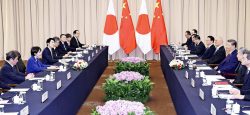
Japan-China Strain Set to Persist as Beijing Officials Self-Interestedly Bash Tokyo; Takaichi Unlikely to Back Down
-

French and German Ambassadors to Japan Call for Democracies to Unite in Defense against Russian Disinformation
JN ACCESS RANKING
-

As Chinese Tourists Shun Japan, Hotels and Stores Suffer
-
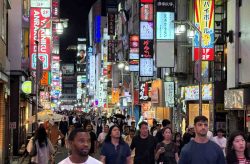
Core Inflation in Tokyo Slows in December but Stays above BOJ Target
-

Osaka-Kansai Expo’s Economic Impact Estimated at ¥3.6 Trillion, Takes Actual Visitor Numbers into Account
-

Japan Govt Adopts Measures to Curb Mega Solar Power Plant Projects Amid Environmental Concerns
-

BOJ Gov. Ueda: Highly Likely Mechanism for Rising Wages, Prices Will Be Maintained




